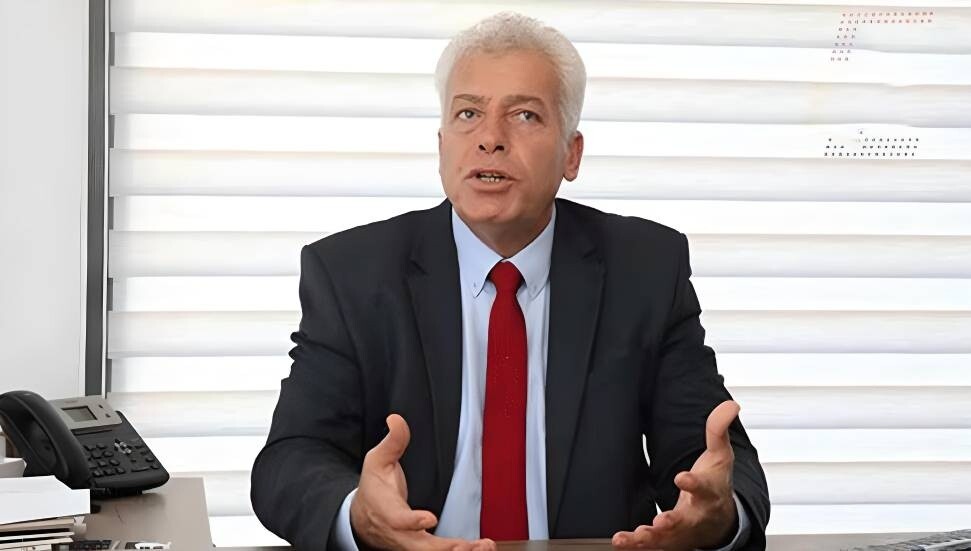The head of the north’s citrus export company Cypfruvex, which is accused of having trafficked hundreds of Bangladeshi nationals and left them to live in squalid conditions in camps near Morphou without any work or wages, was sacked by the north’s ‘government’ on Friday night.
Cemal Redif has been Cypfruvex’s general manager since 2009, and while the ‘government’ did not immediately offer a reason as to why he had been relieved of his duties, he had faced increasing pressure after the conditions of the camps in which the workers were living were revealed.
Rumours had surfaced that he had been sacked as early as October, but those reports were denied at the time, with Redif saying he was on leave.
“I am continuing to work wholeheartedly for the country’s orange producers. I went on holiday for the first time in years. I am carrying out my duty wholeheartedly. I came to this job with my head held high, and if I were to leave it, I would leave with my head held high,” he said at the time.
Redif has reportedly been summoned by the Turkish Cypriot police to the Morphou police station to give a statement regarding the workers’ plight and the more than 100 complaints filed by people saying they had been trafficked into Cyprus.

Newspaper Ozgur Gazete reported that many of the people who were living in the camps around Morphou had been brought to Cyprus between March and June last year, despite the citrus harvesting season having been over by the time they arrived.
As a result, they were left without work and thus without income, living in squalid conditions in shacks near Morphou.
Before October, it with it had been reported in 2019 that four Cypfruvex board members were preparing to resign over a “breakdown in communication” between Redif and the other board members.
Newspaper Yeni Duzen reported at the time that the board had resolved to remove Redif, and that this decision was vetoed by then-‘prime minister’ Ersin Tatar and then-‘health minister’ Ali Pilli.
He had briefly taken up the role of Tatar’s chief of staff when he became ‘prime minister’ in May 2019, but resigned in the September of the same year, with Yeni Duzen reporting he had “struggled to adapt”.
The story regarding the workers’ living conditions had broken in the last week of August 2024, with journalist Pinar Barut saying of the workers’ living conditions that “the scene we encountered in Morphou horrified us. The workers we spoke to said they have been living in these conditions for months.”
“They are all trying to survive in a slave camp, filthy, unemployed, penniless, with no water, electricity, hygiene, toilets, or bathrooms. No one has visited them for months,” she added.
![Migrant workers living in squalor in a camp near Morphou [photo: Ozgur Gazete]](https://cyprus-mail.com/wp-content/uploads/2024/08/workers8.jpg)
One of the workers told Ozgur Gazete, “I came two months and 10 days ago, and I only worked for a month. We buy rice and chicken with our own money and eat here.”
Another said the consultants were two men who identified themselves as “Mustafa” and “Cihangir”. He said he had paid the pair €8,000 for the opportunity to come to Cyprus to work, and that in total the pair may have made as much as €13 million by importing workers from Bangladesh.
He said he had been paid 24,000TL (€632 at the time) for his first month’s work, before being paid just 7,000TL (€184 at the time) for his second month, and not being paid since. The north’s minimum wage was at the time 33,926TL (€893 at the time) per month, and has since risen to 40,436TL (€1,115).
The north’s refugee rights association described the finding of the camps by journalists in August as a “human trafficking scandal” and added that it had a “great impact on society” and has “revealed the ongoing human tragedy in the north of Cyprus”.
“Reports prepared by lawyers and observers from the Human Rights Platform [IHP] determined that these workers were working under conditions which were not in accordance with their basic human rights, and that they were being housed in inappropriate conditions,” they said.
They also said a “needs analysis” study had been carried out, which found that the people living on the sites required “urgent humanitarian aid and legal support”.
“These inhumane conditions go against international human rights treaties and the European Union,” they said, adding that they will continue their work against what they described as “fundamental human rights violations”.






Click here to change your cookie preferences